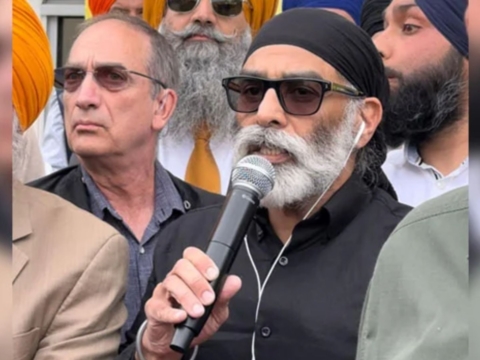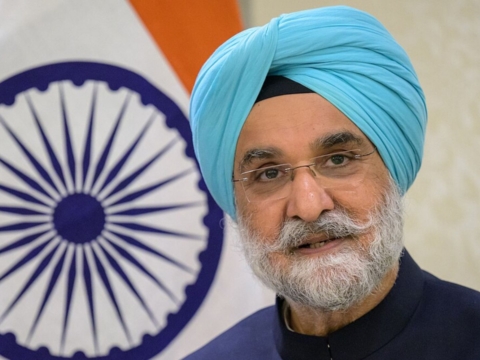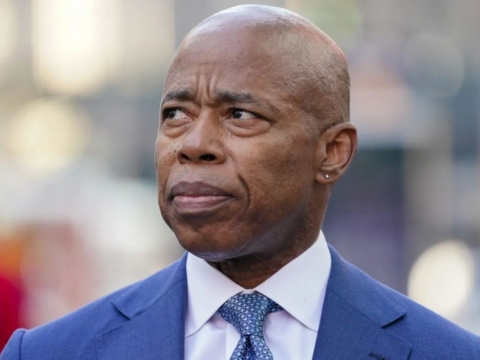
SANTA CLARA, Calif. (Diya TV) – With this year’s election captivating the nation on nightly TV, Indian-American women from both the Democratic and Republican parties are seeking election in record numbers. The boom is being felt in nearly every region of the country.
Despite a small sample size, Indian-American women have already established themselves as a successful electorate in the U.S., with an equally impressive track record. Nikki Haley was elected in 2010, becoming the first female Indian-American governor in U.S. history. She has since established her presence and regarded as a rising star in the GOP by those both inside and outside of the Republican Party. Additionally, her name has been floated as a possible VP candidate for the upcoming presidential election.
Aruna Miller, a Democrat, has served in the Maryland House of Delegates since 2011. After her re-election in 2014, she was appointed to serve on the Appropriations Committee, where she is Chair of the Oversight of Personnel Subcommittee and Vice-Chair of the Transportation & Environment Subcommittee.
Out west, Kshama Sawant was elected to Seattle’s City Council in 2013. A native of India, Sawant earned her PhD from North Carolina State University, and ran a successful campaign as a member of the Socialist Alternative Party. The win saw Sawant become the first socialist to win city-wide election in Seattle since Anna Louise Strong was elected to the School Board in 1916.
In the Midwest, Democrat Swati Dandekar served as a member of the Iowa state legislature for a number of years until she was appointed by governor Terry Branstad to the Iowa Utilities Board. Her public service career began two decades ago when she worked as a member of the local school board.
In the Bay Area, Anu Natarajan served on the Fremont City Council for more than a decade before becoming the city’s vice-mayor. Finally, Reshma Saujani served as New York City’s Deputy Public Advocate before founding the popular technology non-profit Girls Who Code.
And perhaps the biggest story of them all, California Attorney General Kamala Harris, whom few public servants are currently more popular than. The daughter of a Jamaican-American father and Indian-American mother, Harris has spent more than 20 years of her life working in public service. Currently in the midst of a Senate campaign – the seat which Barbara Boxer is vacating – nearly every straw poll taken since the campaign began indicates to her sure victory.
Now that we’ve seen the numbers, how exactly do you explain them?
According to Vishakha Desai, Senior Adviser to Columbia University and President Emerita of the Asia Society:
“Although is exciting to see the rising number of Indian American women on the American political stage, it is not surprising. Most of them are daughters of first generation of Indian immigrants who came to seek higher education degrees in professional fields, ranging from medicine and engineering to finance and science. These rising political stars are raised to succeed in whatever endeavor they pursue.
With the nation fully-versed in election fever, Indian-American women are well-positioned to take even more positions throughout the country in state and federal offices. Here is a look at some of the most promising candidates from elections throughout the U.S.
Jenifer Rajkumar (D-NY) – Running for New York State Assembly
In Lower Manhattans’ 65th Assembly District, Jennifer Rajkumar is campaigning to fill a seat being vacated by Sheldon Silver, one of New York’s most powerful and feared politicians. Silver served as the Speaker of the Assembly, and was frequently referred to as one of the “three men in the room,” who along with the Governor, controlled some of the most important state decisions for two decades. His fall from grace was swift and put on display with as much attention as his success – Silver was convicted of federal bribery, as well as corruption and for taking kickbacks.

At age 33, Rajkumar works as a human rights attorney, and is running on an all-too-familiar platform of combatting Albany’s notorious corruption. Named a “rising star” by New York’s City & State news outlet, Rajkumar would be the first Indian-American elected to the New York State Legislature.
She is a Stanford Law School graduate, and specializes in representing the poor and the disenfranchised, including low-income families, and workers and women who experience discrimination in the workplace. She currently works for the civil rights firm Sanford Heisler Kimpel LLP, and has played an instrumental role in winning several whistleblower cases, as well as the largest gender discrimination case to ever go to trial. The case was ultimately named by the United Nations as one of the top ten cases in the world for advancing women’s rights. In 2015, she was selected by Super Lawyers to the New York Metro Rising Stars List, an honor no more than 2.5 percent of lawyers in New York receive. This is an incredible accomplishment, and her gender discrimination cases have paved the way for more women to speak out about any kind of harassment that they have experienced in the workplace. You can click here to learn more about discrimination and harassment in the workplace, and the steps people take to obtain justice.
Kesha Ram (D-VT) – Running for Lieutenant Governor of Vermont
Kesha Ram was originally elected in 2009 to the Vermont House of Representatives at the ripe age of 22, making history by becoming the youngest female member of the state legislature. Since that time, Ram has established herself with an eight-year track record of forging bi-partisanship on a series of issues affecting the state. Though it hasn’t yet been a decade, she’s prepared to trail blaze more, hoping to make history once again by being elected Lieutenant Governor.
Throughout her legislative tenure, Ram has spearheaded a laundry list of progressive priorities: expanded tax incentives for statewide economic growth, green job creation, paid family leave, access to early learning and higher education opportunities, affordable housing and civil rights.

Ram was also the most vocal of the state’s politicians in the implementation of a first-time homebuyer assistance program, protecting victims of domestic and sexual violence and ensuring the state’s residents do not have to choose between a paycheck and taking care of a sick child. She’s established herself as the candidate focused on revitalizing an economy sustainable for all Vermonters and finding further ways to bring them out of poverty.
“Throughout my time in the Vermont legislature, I have remained true to my roots. I have worked to support the immigrant and refugee community, including creating immigrant driver’s licenses, advancing community policing and working to erect Vermont’s first Hindu temple. Now, on the campaign trail, I can tell my truly American story of bussing tables in my Indian immigrant father and Jewish American mother’s Irish pub. Vermont is at a pivotal time in its history, when new voices are needed at table to chart out our future. I hope to be one of those voices as Vermont’s next Lieutenant Governor.”
Mary Thomas (R-FL) – Running for Congress in Florida
Lathika Mary Thomas, a self-described “strong conservative Republican,” is challenging Congresswoman Gwen Graham for the seat in the Second Congressional District in Florida. If elected, Thomas would make some history of her own, becoming the first Indian-American ever elected to Congress in the state.




